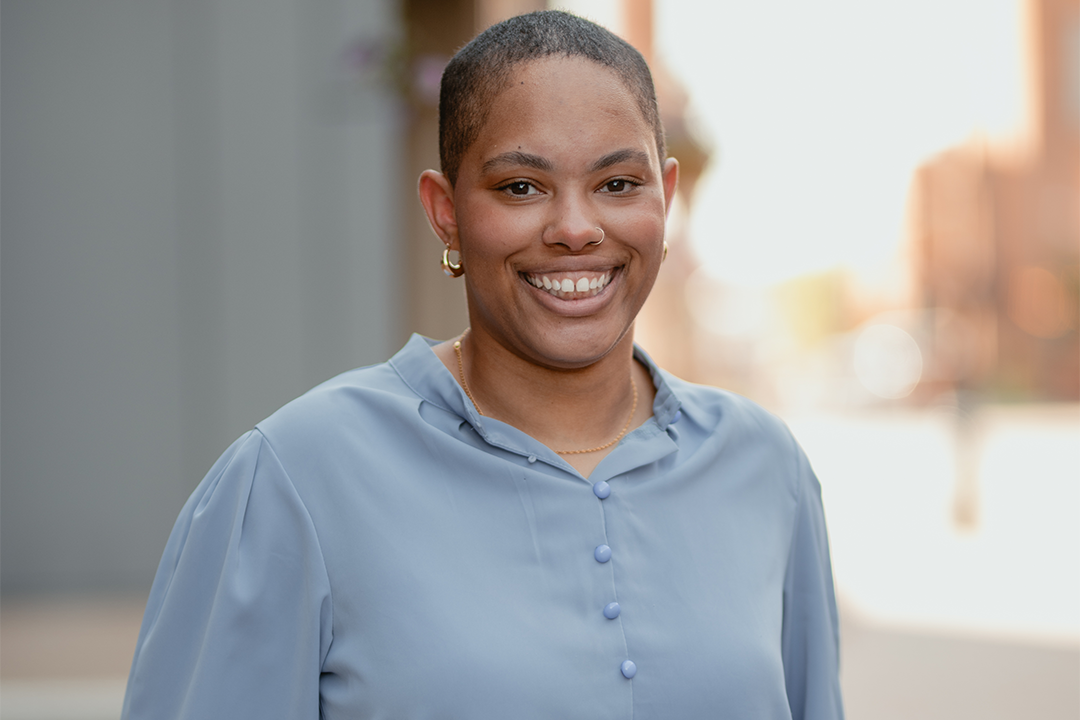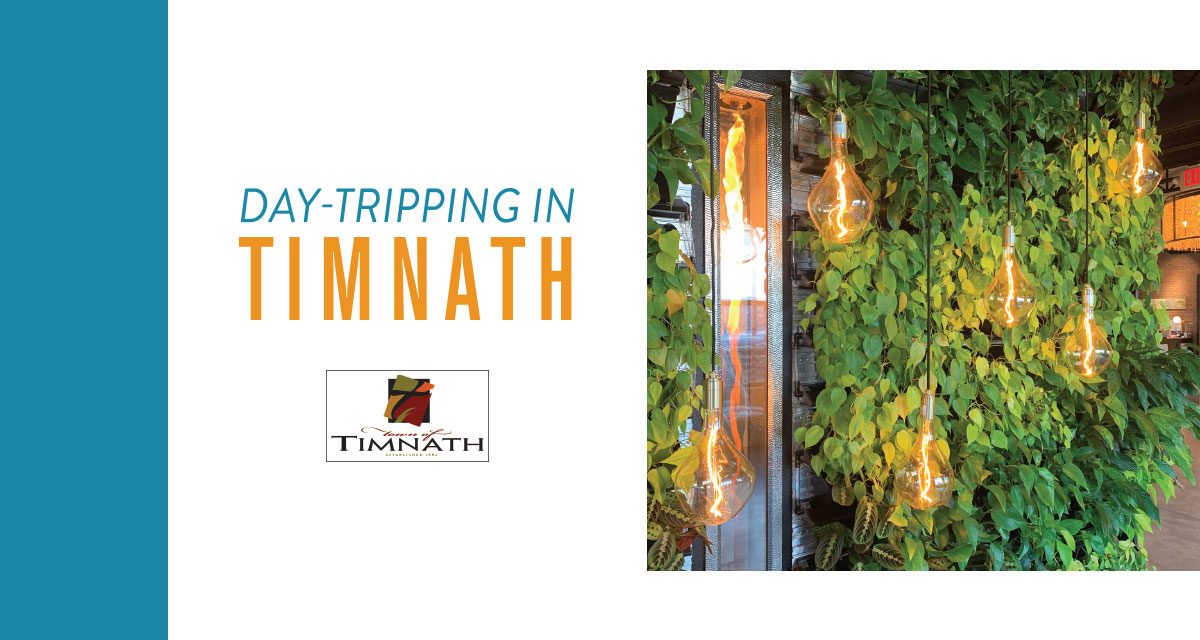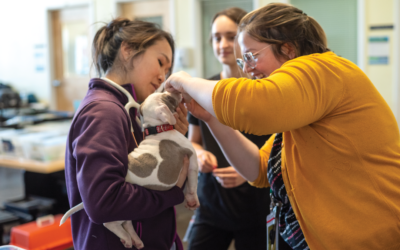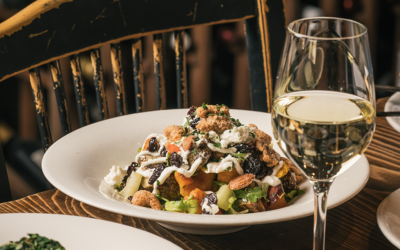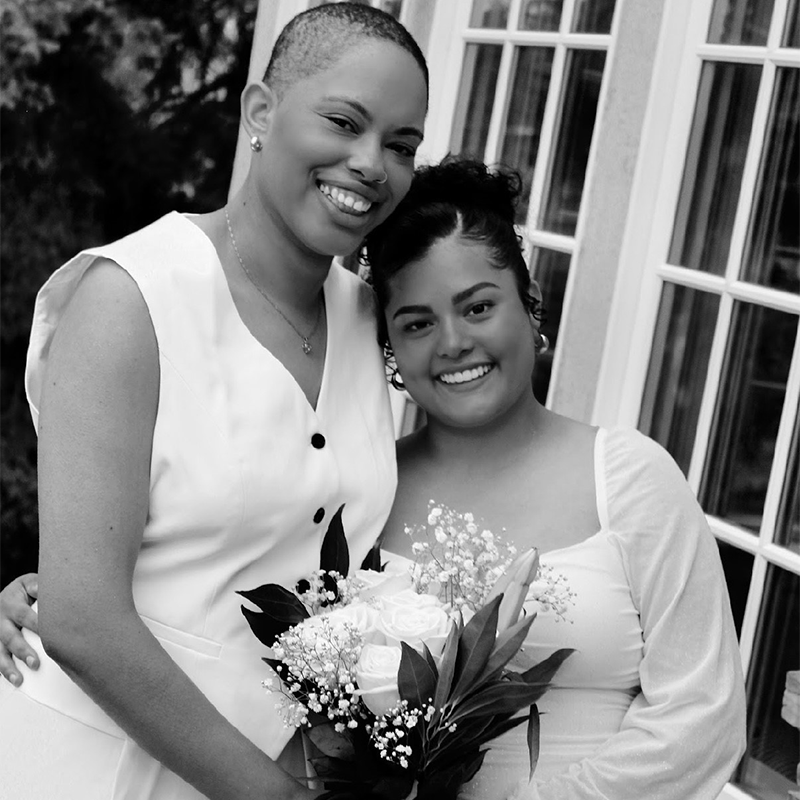
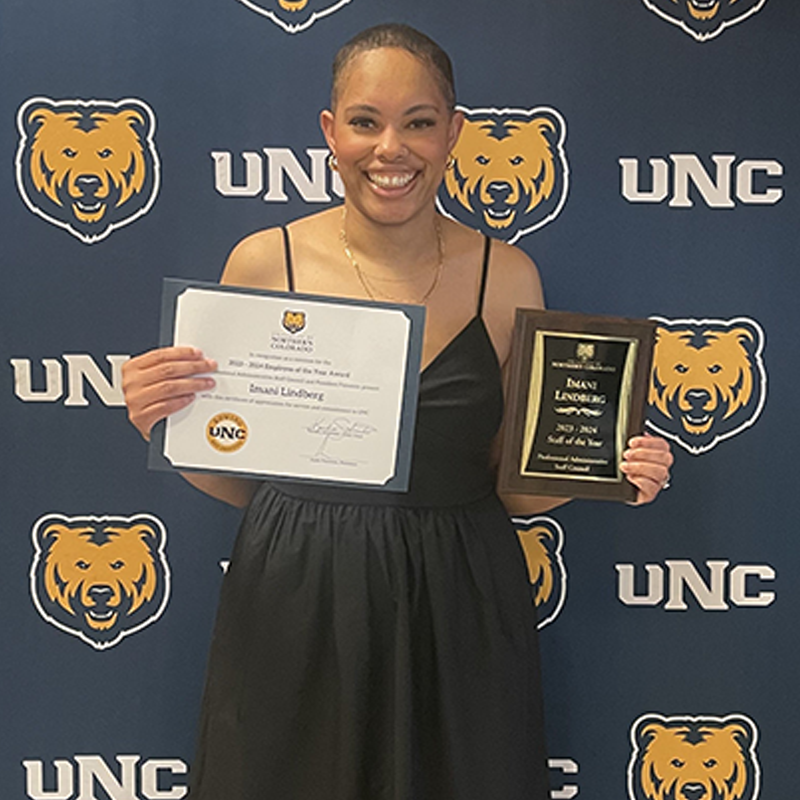
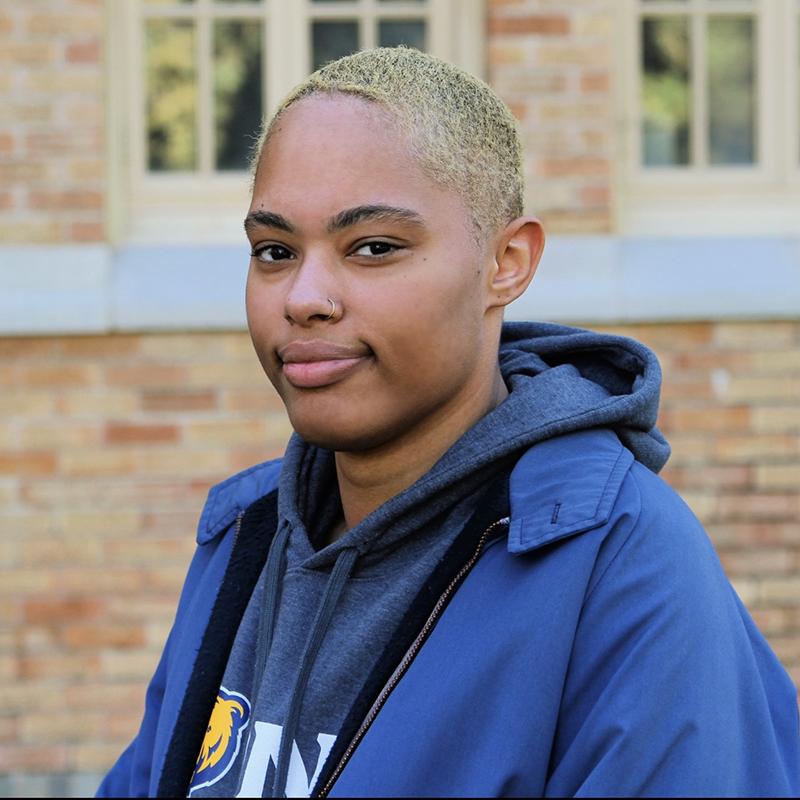
26 years old • Greeley
Assistant director of advocacy services at the University of Northern Colorado
What’s your occupation? Explain your career, accomplishments and professional highlights.
I’m the assistant director of advocacy services at the University of Northern Colorado, overseeing the Assault Survivors Advocacy Program (ASAP). My responsibilities include meeting with survivors, developing prevention initiatives and supervising eight to 10 students and a graduate assistant. Since starting in September of 2022, I have coordinated the program’s 30th anniversary celebration and will present at the National Organization for Victim Advocacy’s 50th annual conference. I was also awarded the 2023-24 Professional Administrative Staff Council’s Employee of the Year.
Tell us about yourself, your history and how you came to be where you are now.
I grew up in Aurora and attended UNC starting in the fall of 2016, where I engaged with ASAP, worked various campus jobs and met my future wife. I deepened my understanding of my identities and saw how my Blackness and queerness intersected. After graduating in 2020, I earned a master’s degree in public administration from the University of Oregon. I then returned to UNC as the assistant director of advocacy services, and I’m now pursuing a doula certification through DONA International to support the Northern Colorado BIPOC and LGBTQIA+ community. Outside of work, I have had the opportunity to work with the Sexual Assault Victim Advocacy center, and while the relationship began as a work connection, I expanded that relationship last summer when I volunteered for their SuperWorld program.
Tell us something unique about you.
I am in the process of collecting all the horror-themed Funko Pops and currently have nine of them. I grew up watching horror movies with my siblings, and horror is my favorite book and movie genre. I also recently rediscovered my love for reading after not reading for fun in years. I have read 22 books so far this year, though this number will likely change by the time this is published.
What do you consider the biggest accomplishment or challenge you’ve overcome, either professionally or personally?
My biggest accomplishment, both professionally and personally, is graduating college. I never imagined I’d have two bachelor’s degrees and a master’s by age 24. The opportunities I’ve had are due to the time and energy dedicated to my education, which I don’t take for granted. While higher education isn’t for everyone and success looks different for others, it helped me tap into my true potential, which I continue to unlock and explore.
Where do you see yourself in five years? In 10 years?
In the next five years, I aim to enhance my leadership by volunteering with Greeley organizations focused on housing, health equity, youth or survivors of gender-based violence. I also plan to establish my doula business and prioritize learning beyond higher education. In 10 years, I hope to be a thought leader in best practices for serving birthing people through diversity, equity and inclusion while continuing to impact the Northern Colorado community positively.
What piece(s) of advice would you give to your younger self?
Never stop sharing and telling your story. The things you have to say are important, and those who value and respect you will cherish your stories (even when they are a little long) and experiences and will not make you feel small.
Why are you so passionate about advocacy for sexual assault victims?
At the Take Back the Night event, there’s a sign that reads, “I came to be a student, not a survivor,” and this message often comes to mind when I think about why I do this work. I am passionate about advocating for survivors because no one asks for bad things to happen to them, and no one deserves to have their autonomy taken away. Survivors deserve steadfast support, validation and access to resources. After watching the documentary, “The Hunting Ground,” which highlights the experiences of survivors reporting to their universities, I was inspired to help create change and support individuals through some of their most challenging moments. I believe that it is crucial to talk about consent, healthy bodies and related topics with children early on so they can develop these essential skills from a young age.
How does being a doula for the BIPOC and LGBTQIA+ communities offer them support?
Various data shows that BIPOC individuals, particularly Black womxn, face higher rates of mortality during childbirth. Having a doula present throughout the birthing experience lowers the likelihood of cesarean births by 39 percent, reduces dissatisfaction with the birth experience by 35 percent and decreases the incidence of postpartum depression and anxiety, among other benefits. Additionally, LGBTQIA+ individuals often experience more adverse medical outcomes than non-LGBTQIA+ people, which highlights the importance of inclusive and respectful care. As a member of the LGBTQIA+ community myself, I understand the harm caused when identities are not respected. My current goals related to the field are obtaining my certification by the end of next year, establishing my business and obtaining an LLC and beginning to network, market and provide doula services. In the long term, I would love to train others who want to be a doula and be a thought partner around how to best serve BIPOC and LGBTQIA+ people who are giving birth.

